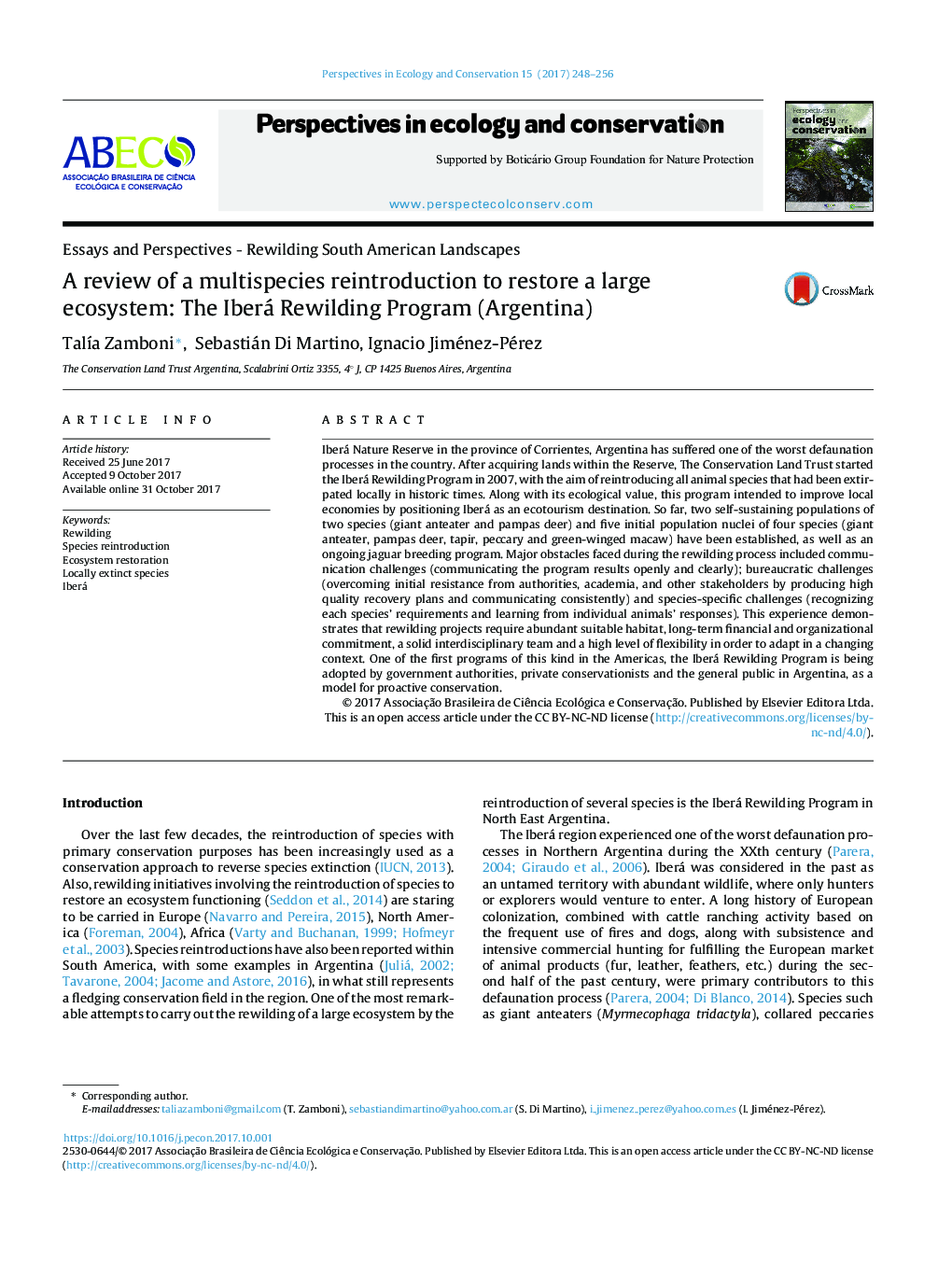| Article ID | Journal | Published Year | Pages | File Type |
|---|---|---|---|---|
| 8920063 | Perspectives in Ecology and Conservation | 2017 | 9 Pages |
Abstract
Iberá Nature Reserve in the province of Corrientes, Argentina has suffered one of the worst defaunation processes in the country. After acquiring lands within the Reserve, The Conservation Land Trust started the Iberá Rewilding Program in 2007, with the aim of reintroducing all animal species that had been extirpated locally in historic times. Along with its ecological value, this program intended to improve local economies by positioning Iberá as an ecotourism destination. So far, two self-sustaining populations of two species (giant anteater and pampas deer) and five initial population nuclei of four species (giant anteater, pampas deer, tapir, peccary and green-winged macaw) have been established, as well as an ongoing jaguar breeding program. Major obstacles faced during the rewilding process included communication challenges (communicating the program results openly and clearly); bureaucratic challenges (overcoming initial resistance from authorities, academia, and other stakeholders by producing high quality recovery plans and communicating consistently) and species-specific challenges (recognizing each species' requirements and learning from individual animals' responses). This experience demonstrates that rewilding projects require abundant suitable habitat, long-term financial and organizational commitment, a solid interdisciplinary team and a high level of flexibility in order to adapt in a changing context. One of the first programs of this kind in the Americas, the Iberá Rewilding Program is being adopted by government authorities, private conservationists and the general public in Argentina, as a model for proactive conservation.
Related Topics
Life Sciences
Agricultural and Biological Sciences
Ecology, Evolution, Behavior and Systematics
Authors
TalÃa Zamboni, Sebastián Di Martino, Ignacio Jiménez-Pérez,
